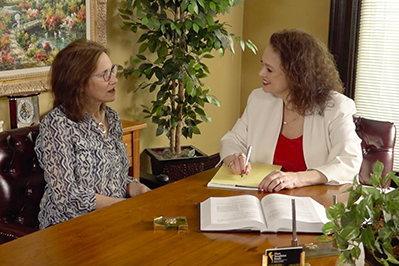Everyone has a legal duty to act rationally to ensure others are safe and free from danger. Often called the duty of care, this responsibility is bestowed on different kinds of people, from drivers on the road to property owners, employers, and even medical professionals. One is said to have breached the duty of care when their negligence or irrational conduct results in someone else’s injuries in a car crash, slip-fall accident, or workplace accident. Consequently, the negligent party can be held liable and sued in a personal injury case to compensate the injured party for the pain, suffering, and economic damages suffered as a result of the accident.
Nonetheless, most of these cases demand that the plaintiff (person suing) provides solid evidence to show that indeed, the defendant’s actions or inaction amounted to negligence and a breach of duty of care. Flora Templeton Stuart Accident Injury Lawyers have helped victims with personal injury claims for 47 years and work to establish negligence in these cases for their clients.
In this article, we shall cover some ways through which the duty of care owed to a personal injury victim is established and how to prove that it was violated, resulting in the injuries and damages suffered by the victim.
IN THIS PIECE:
- Types of Personal Injury Cases
- Understanding Duty of Care
- Suffered Damages
- Breach of Duty of Care
- Cause In Fact
- Proximate Cause
TYPES OF PERSONAL INJURY CASES
Examples of personal injury claims in Kentucky include slip & fall, car accidents, truck accidents, dog bite injuries, and all types of claims where the negligence of another caused bodily injury to the victim.
UNDERSTANDING DUTY OF CARE
Duty of care is a legal responsibility that is demanded from an individual in relation to others. It requires them to stick to standard, sensible reasoning and judgment while executing an act that could otherwise injure others. Duty of care plays a major role in determining who was at fault during the time of the accident. To receive maximum compensation from a personal injury case, the claimant is supposed to show that, indeed negligence occurred. A duty arises if there was a relationship between the claimant and the defendant, which demanded a certain standard of care towards the plaintiff.
For instance, let’s say the defendant was loading bags of rice into a truck on the side of the road, and a teenager was struck by a bag while passing by. It must be determined that the accused person (the defendant) owed a duty of care to the said teenager. If this accident happened in a public place, then the court can find the defendant guilty of breaching their duty of care.
However, this may not be the case if the said teenager was trespassing, and the accused was not aware of the kid’s presence at the time of the incident. The court may find the defendant not guilty of the charge as far as the duty of care is concerned.
Example Situations Where Duty of Care Is Automatically Owed
There are many situations where a party is automatically in debt of the duty of care to another person. Here are some examples to help us better understand this:
- In Traffic: As a driver on the roads, you owe a duty of care to other motorists, passengers, pedestrians, and property, including animals.
- In Medical Practice: As a medical practitioner, the life and wellbeing of your patient may depend on your rationale when concluding a diagnosis, carrying out a procedure, prescribing medication, or dispensing drugs. You owe the patient a duty of care!
- As A Property Owner: Property owners whose premises are frequently used by the public have a legal responsibility to make sure the premises are free from health and safety hazards. If someone slips and falls, and sustains an injury due to slippery surfaces or gets injured by an overhead falling object, it is their legal right to bring a lawsuit against the premises owner, for instance.
- Defective Product Injuries: Manufacturers of consumer products also owe their intended users a duty of care. If you’ve been injured by a faulty product, you may qualify for a product liability compensation claim.
In all these scenarios, one needs to prove that the negligence of the party who owed then a duty of care indeed caused the accident, injuries, and damages suffered.
THE DAMAGES SUFFERED
Personal injury cases often result in various kinds of damages, from pain to trauma, emotional agony, and financial losses. These are commonly referred to as compensatory damages and their proof of occurrence is one of the first steps in establishing a duty of care. When making a claim, the victim needs to demonstrate that the injury was a result of the accused failing to exercise reasonable care. They have to show that this failure resulted in the damages suffered and that a duty of care was owed to them.
Apart from compensatory damages, sometimes personal injury cases may involve what is known as punitive damages. These serve as extra punishment to the responsible party who caused you harm despite being less frequently awarded.
BREACH OF DUTY OF CARE
Proving negligence is an essential determinant of whether or not one receives compensation in a personal injury case, and how much of it they get. As a plaintiff, you must prove that the defendant owed you a duty of care not to harm you, and this is done by providing different types of solid evidence rather than just oral accounts of the incident. Plaintiffs often need a decorated personal injury attorney to compile and establish compelling evidence to show that their duty of care was owed to them and that it was breached by the defendant.
Referring to the truck loading example earlier mentioned, a breach of duty can be pinpointed to when the defendant was loading the bags of rice on the truck. The jury must be supplied with adequate proof that the defendant did not employ reasonable care while handling and loading the bags of rice when a teenager was passing by. The plaintiff must demonstrate that the defendant’s negligence or carelessness led to a personal injury suffered by themselves or a loved one.
CAUSE IN FACT (CAUSATION)
In a personal injury case, “cause in fact” is used to refer to situations where the victim’s injuries were a result of the other party’s direct actions. It is also synonymously referred to as causation, which can also help establish a duty of care. In causation, the plaintiff should prove that the accused’s act was the real cause of the injuries. This simply involves showing that if it were not for the defendant’s actions, the injury would not have occurred in the first place.
In the example above, we can see that if the defendant was careful enough to mind passersby while loading the bags of rice on the truck, the teenage kid would not have suffered the said injuries. In causation, your personal injury lawyer must establish a clear connection between the carelessness and the negative result you suffered.
PROXIMATE CAUSE
Proximate cause is whereby the jury determines the extent of the defendant’s negligence in a personal injury case. A defendant is found guilty in those cases where they could have foreseen harm or injury through their actions but failed to take reasonable care. If the injury caused was outside the defendant’s scope to foresee the risk at hand, then the plaintiff cannot prove that the defendants’ actions were the proximate cause of the injuries suffered.
From the example above, the plaintiff must prove that the defendant could have envisioned the danger, but still failed to take the necessary action, which resulted in the bag hitting the victim. On the other hand, if the injury is aloof to the act of the defendant, then the plaintiff will be less likely to prove proximate cause.
CALL AN ATTORNEY IF YOU ARE INJURED
Personal injury cases can be quite complex sometimes, especially when it is difficult to acquire solid proof of negligence and that a duty of care was owed to you by the party responsible for the accident. However, it doesn’t have to bring you shivers or make your life a living hell.
With the help of experienced accident injury lawyers from Flora Templeton Stuart Accident Injury Lawyers, establishing the above facts in or out of the court can be easier than going it alone. Expert attorneys know the law better and can help establish the duty of care even in the most difficult cases to crack. Call us 24/7 for a free consult or information.

